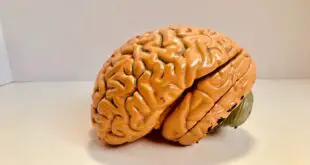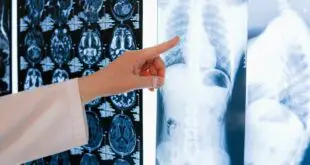Everybody likes sipping on a cup of joe from time to time. However, if you drink coffee frequently, you may notice some staining on your teeth. Is the stain coming from coffee? Does coffee stain your teeth?
Yes, coffee can stain your teeth. This is because of the tannins present in the drink, which may get into the tiny pores on our teeth enamel and stay there, leaving a permanent coffee-colored stain. Frequent brushing and whitening help to remove the stains.
This article discusses if coffee does stain your teeth and how it does that. We also explore helpful tips on how to enjoy your coffee and still avoid staining your white teeth, braces, and aligners, as well as list down other foods and drinks that may stain your teeth.
Does Coffee Stain Your Teeth?
Coffee does stain your teeth. This is because coffee contains tannins, an organic compound that gives coffee its flavor but also has an intense color. When drinking, tannins seep into the pores on your teeth enamel, leaving a yellow hue on your teeth.
If you are wondering if the yellow hue on your teeth comes from your coffee, you are right. It might just be the stains left behind by your favorite cups of joe.
Coffee is essentially full of organic compounds that give it its unique smell, flavor, and color. One of them is called tannin. Tannins are most recognized for having a rich brownish color and are the main culprit behind your teeth stains.
Our teeth’s outside layer are called enamel, which is the hardest part of our teeth. However, when looking at enamel at a microscopic level, you may see that the surface is uneven and porous, with many small holes and pores on it.
When you sip coffee, what happens is that the tannins become trapped in the enamel’s pores and eventually cause a yellowish hue on the teeth’ surface. As you sip on coffees, more tannins occupy your enamel pores over time, resulting in general yellowing and, in worse cases, browning of your teeth.
You may like this article: How Long Does It Take For Eyelashes To Grow Back?
How To Prevent Coffee From Staining Teeth?
To avoid staining your teeth, try to consume coffee without having the fluid going through your teeth. You can drink from a straw, or you can chug the coffee as well. You also may want to brush your teeth after drinking or consider diluting the coffee with milk.
Many of us may not like seeing our teeth go yellow, especially if we have spent a fortune on dental whitening. However, we are not willing to let go of drinking coffee either, as it is, in many ways, the drink that keeps us going.
This means we may need to consider some methods to reduce staining on our teeth as we sip our joes.
Brush After Drinking
One of the best ways to avoid staining your teeth from coffee is to immediately brush it after. The idea here is that when you just finished drinking, in many ways, the tannins have still not permanently attached to the enamel. Brushing will help to dislodge the tannins from your enamel, avoiding staining.
Use A Straw
Ever wonder why some people sip their hot lattes from a straw? This is the reason. It prevents your teeth from going yellow.
When you sip your coffee using a straw, your drink enters your mouth, and then you swallow it without going through your teeth. This is unlike sipping coffee from the cup lip, where coffee will travel past your teeth first before reaching your throat.
This means you enjoy the drink while minimizing the discoloring and yellowing the tannins will do to your shiny white enamel.
Dilute with Milk
Diluting your coffee with milk may also reduce the staining effect of the tannins on your enamel. You may wonder the logic behind this, as even with milk, you still ingest the same amount of coffee. This means the same amount of tannins pass through your teeth, and you should get a similar yellowing effect.
The key is the milk itself. Milk contains casein, a protein that gives milk its white color. Casein is known to attach itself to tannins, reducing its discoloring effect on teeth. This may also explain why some people switch to drinking latte or cappuccino after whitening their teeth. They want to avoid staining it again.
Chug, Don’t Sip
To some, drinking coffee out of a straw is no fun. But they also want to avoid sipping as it may discolor their teeth. Another option is to chug the coffee. You chug your coffee by opening your mouth wide and then pour the coffee right into your mouth.
This avoids the coffee coming into too much contact with your teeth, reducing the likelihood of staining. However, you cannot chug a hot coffee, as it may just burn your throat and tongue. Your best bet with chugging coffee is with it at room temperature or cool. Cold coffee, if chugged, may also trigger brain freeze, so you want to be careful with that.
How To Get Rid Of Coffee Stains?
You can remove coffee stains by brushing your teeth with baking soda and hydrogen peroxide or using a home dental whitening kit. You may also get professional help to return your teeth to their original whiteness.
One good thing about coffee stains on teeth is that they are not permanent and can be removed with proper applications and procedures. You may decide between doing this at home or going to your local dentist for a professional job.
Baking Soda & Hydrogen Peroxide Home Remedy
If you are keen to go fully DIY, you may consider mixing these two robust whitening materials together and using them on your teeth. Mix baking soda with hydrogen peroxide at a 1:2 ratio, and stir to form a paste.
Brush your teeth with the paste, and remember to rinse your mouth thoroughly after, as you don’t want these things lingering around in your mouth for too long.
Home Dental Whitening Kit
If you are unsure about doing a home remedy, you can always visit your local pharmacy to see if they have any home dental whitening kits. You may also hunt online on places like Amazon for any available packages.
These kits usually come in the form of a gel that you then press and fill into a mouth guard. You then wear the mouth guard, and the gel works, cleaning and whitening your teeth. Some kits come with LED lighting to accelerate the whitening process.
Professional Whitening Treatment
However, if you prefer a well-done job, you can always rely on a professional. A professional dentist can tailor a specific whitening treatment based on the condition and requirements of your teeth.
They may be costly, but when you think about it, you only have one set of teeth, and the last thing you want is to ruin it over some botched DIY whitening operation. Plus, a professional whitening procedure also gives better results, sometimes in a much faster time.
Does Coffee Stain Aligners and Braces?
Yes, coffee does stain aligners and braces. But unlike teeth, aligners and braces can be removed for deep cleaning or replaced at will when discoloring has become too advanced. This makes it less of a problem than stained teeth.
The tannin in coffee can stain everything, from your shirt to your couch, teeth, braces, and aligners.
However, the good thing is that these are not permanently structured in your mouth. You can always remove them from your mouth for a deep clean before putting them back in again.
In the worst-case scenario, suppose the aligners or braces have discolored so severely that you cannot clean them to your satisfaction. In that case, you can always use another aligner or install a new set of braces.
You may like this article: Why Do We Have Nails?
Are There Other Foods and Drinks That Stain Teeth?
Aside from coffee, food and drinks such as red wine, cola, some fruit juices, curry, soy sauce, balsamic vinegar, or tomato-based sauces can stain your teeth. They contain a combination of strong coloring agents and acids that erode your teeth.
Red Wine
Similar to coffee, red wines also contain tannin. Aside from that, red wines can be acidic and contain natural dyes, which means the acids may soften your enamel, making them easier to stain. Your teeth may turn purple, reddish, or brownish after drinking wine.
Cola
As many would know, Cola drinks such as Coke or Pepsi are highly acidic and may soften your enamel. Cola also comes with Chromogen, an ingredient that gives Colas their black-brownish color. Chromogens will also stain your teeth.
Fruit Juices
Many fruit juices, such as pineapples and oranges, are acidic. These juices also tend to have color dyes, which means as the acid softens your enamel, the colors become attached to it, discoloring your teeth.
Soy Sauce
Any colored liquid has the potential to stain your teeth, and the same can be said about soy sauce. The issue with soy sauce is although it is not acidic, it is highly concentrated. This means it also has more color dyes that may stain your teeth.
Balsamic Vinegar
Balsamic vinegar also similarly stains your teeth as red wine. The acetic acid softens your enamel, allowing the tannins and color dyes on the vinegar to easily attach to your teeth’s enamel.
Tomato-Based Sauces
Tomato-based sauces are also known to cause teeth discoloration, as the sauces are acidic in nature, softening and eroding the enamel surface, and making the colorings on the sauces stick to your teeth easier.
The key to managing food or drinks that may cause discoloration is to either not consume it, brush your teeth after eating or get regular whitening treatment.
 Being Human
Being Human




